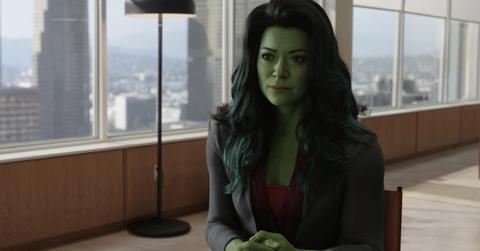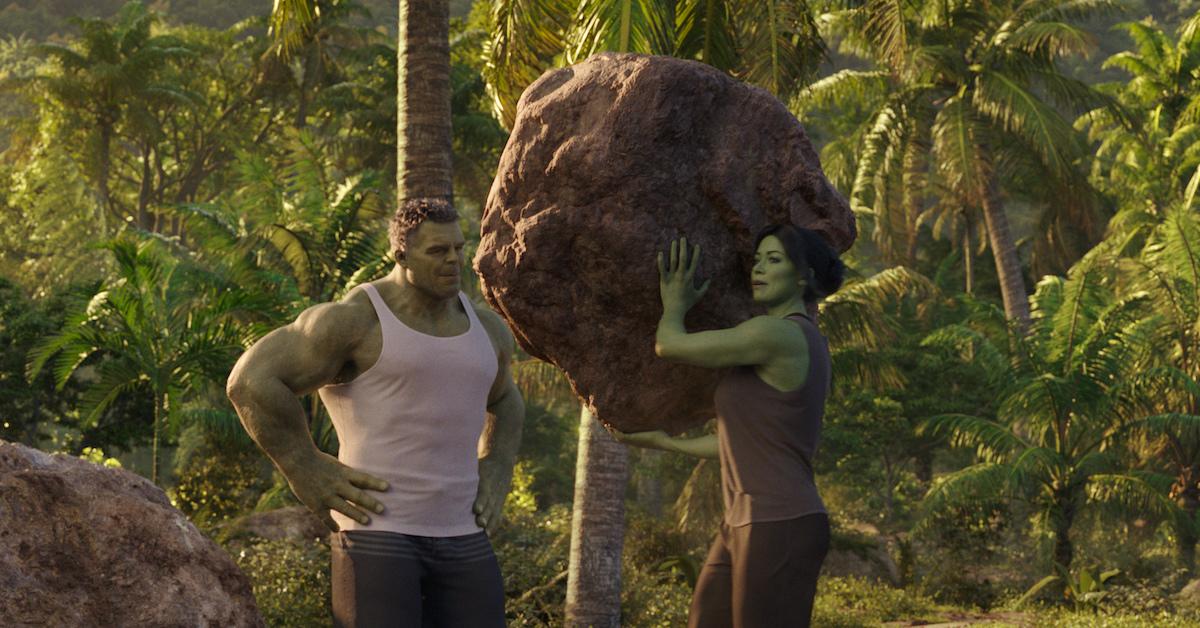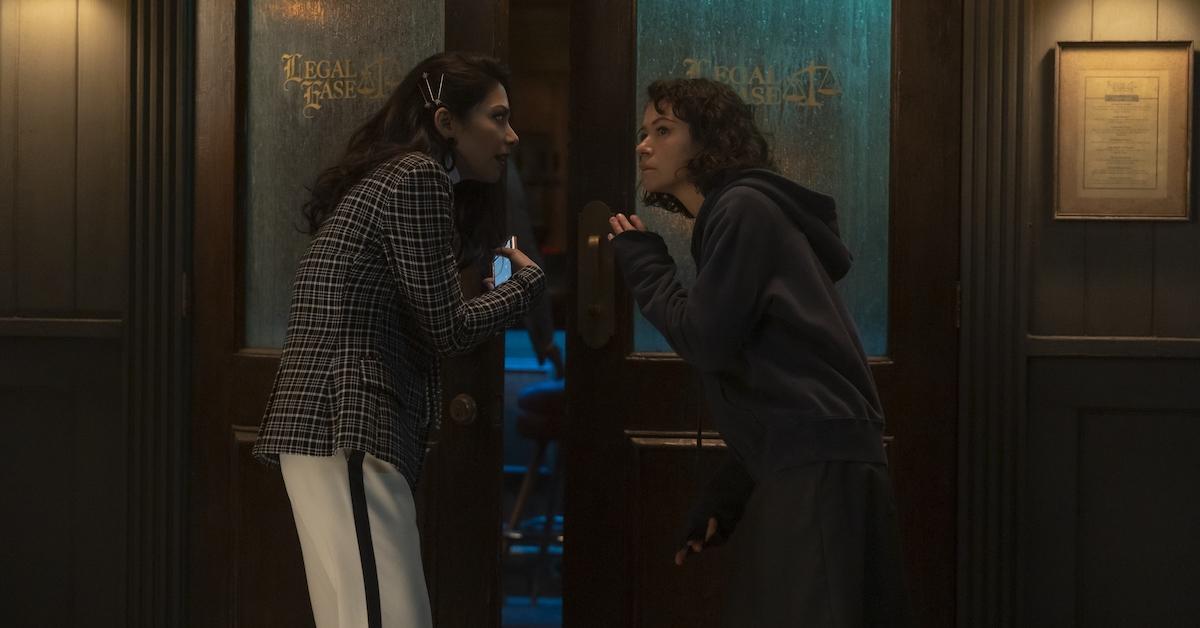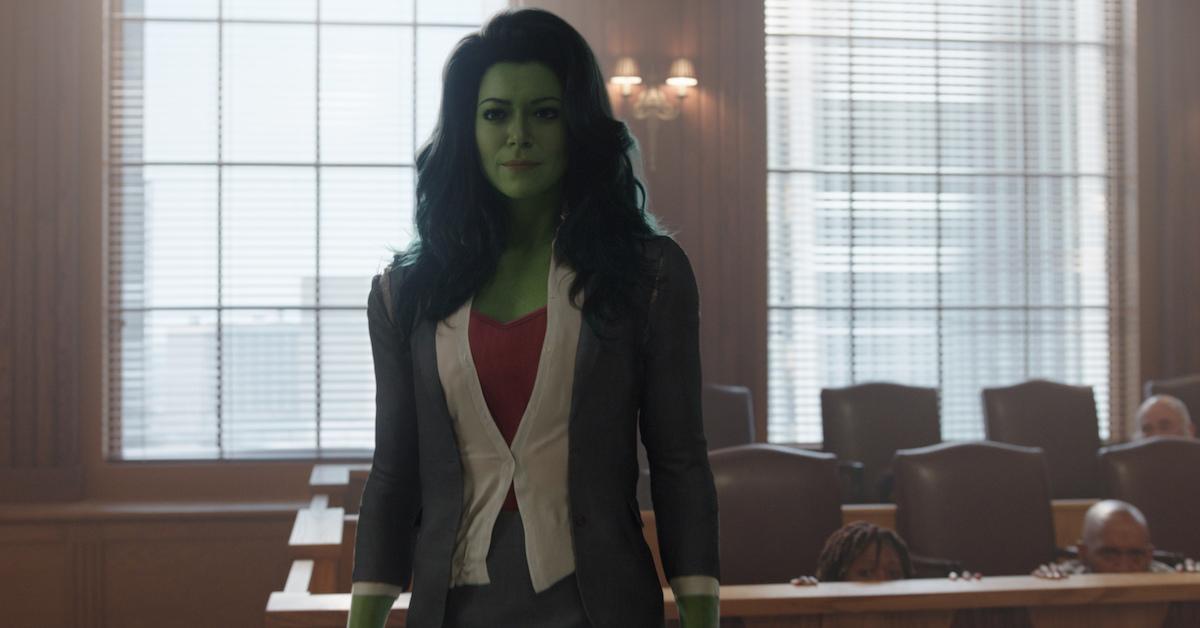'She-Hulk' Attempts to Be Feminist, but It Bounces off the Glass Ceiling Instead
Published Sept. 1 2022, 9:57 a.m. ET

Now that we’re a few episodes into She-Hulk, the critics are coming out of the woodwork. The newest MCU series is much more lighthearted than shows like Moon Knight and Loki, but it still attempts to create a deeper meaning. In doing so, it quite overtly hits its audience over the head with feminism, causing many viewers to claim that it exhibits “forced” feminism via its very literal “strong female protagonist.”
Between Jennifer Walters’ fourth-wall breaking comments and a plot revolving around a woman in the workplace, there’s plenty of opportunity for feminism … or in this case, “toxic feminism.” Meaning, the show relies on old feminist connotations that only further the harmful stereotypes separating men and women in current society. For example, She-Hulk is still traditionally attractive, even in her Hulk form, according to patriarchal standards. But Hulk is just big, muscle-y, and angry.

Many viewers think ‘She-Hulk’s' attempt at a politically progressive series falls short thanks to “forced” feminism.
In Episode 1, Jennifer recites a now viral monologue about how she controls her anger. “I’m great at controlling my anger,” she says. “I do it all the time. When I’m catcalled in the street … When incompetent men explain my own area of expertise to me …”
This is a very simplistic view of what it means to be a woman. Yes, these are some of the hardships women are working to fight against; however, it’s not just these little moments that make us angry, but the systemic sexism that makes this behavior among men common. The show suggests Jen’s anger exists solely in these moments, ignoring the fact that these moments’ frequency and acceptability is what breeds the most contempt.
Not only that, but Jen’s monologue assumes that women are good at controlling our rage because of the actions of men. While that may be Jen’s experience, not all women are skilled at controlling rage. In fact, a better bit of dialogue would be to say that women control their rage because if we don’t, we’re seen as erratic or “on the verge.”
An angry woman is much more unlikable (and thus more unemployable) than an angry man, according to societal norms. In the MCU, angry men like the Hulk can be heroes, but angry women must immediately control their anger to be deemed heroic. Instead of breaking the patriarchy, She-Hulk feeds directly into this idea by creating a female Hulk who doesn’t actually Hulk out. In fact, Bruce has to teach her to scream like a Hulk.
Is there harm in this over-simplicized and overt level of feminism? Definitely. As Twitter user Kai Cheng explains, this sort of “pop feminism” is actually one of the ways in which white feminism comes through. She explains, “In reality, white, cis career women like Jennifer Banner [sic] (She-Hulk) are not automatic experts in anger management because they must manage male egos and aggression. Rather the tendency of white, cis women is to displace their repressed anger on those of lesser status.”
It may not be intentional, but Jen does displace her anger on the world around her. She does get mad at Bruce, and her subordinate, who she also snips at, just happens to be a POC, played by Ginger Gonzaga. Jen’s feminism stops at being a career-centric powerful woman, and ignores her white privilege, along with the privilege she gets from being a traditionally attractive woman (and Hulk).

This feeds more into second wave feminism, which was popular in the 1960s as a movement to see more women in workplaces. Today, we’re in fourth wave feminism, which is an intersectional movement focused on gender equality by subverting gender norms. However, She-Hulk seems to feed right into those norms.
‘She-Hulk’ tries to force a feminist meaning, but it doesn’t totally come through.
In Episode 2, Jen complains in her fourth wall break that a man wouldn’t be treated the same way when she’s forced to be in her Hulk form at work. This is definitely a nod to the fact that women are treated differently in the workplace from men. Women must control their emotions, their appearance, and more to be taken as seriously as their male counterparts.

However, Jennifer is a Hulk after all, and that’s not completely relatable. The metaphor is somehow both too overt and at the same time, completely unrelatable for women who actually go through workplace discrimination. One thing we can relate to though, is Jen’s desire to be taken seriously as a lawyer and as a superhero. She’s not just a female version of the Hulk, and she’s not just a Hulk lawyer.
So while bits and pieces of She-Hulk may be more harmful than helpful to the feminist movement, it’s clear that the series’ intentions are pure. However, it may be confused about its target audience. Is it geared towards people who are already feminists? In that case, we don’t need the didactic dialogue of Jen’s frustrations with the patriarchy.
Is it geared towards younger MCU fans who may not be as familiar with the downfalls of the patriarchy and the feminist movement? If so, there are quite a few dirty jokes … such as about Steve Rogers’ virginity. If She-Hulk leaned more into its adult jokes and took a more nuanced look at its feminism, it could have become the lawyer show meets Bridesmaids meets superhero flick many feminists were looking for.
Perhaps with a little more time, a little more editing, and a clearer target audience, She-Hulk could have been the hilarious feminist romp it attempts to be.
New episodes of She-Hulk drop every Thursday on Disney Plus.